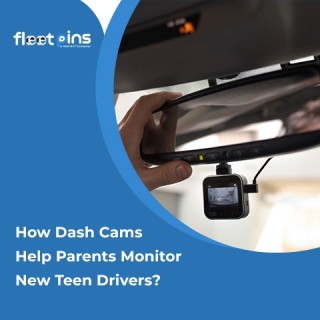- On 2024-09-27
Can a Car Tracker Drain Your Battery? Tips to Prevent Battery Drain
Car trackers, also known as GPS trackers, are incredibly useful devices that help you monitor the location and movements of your vehicle in real time. Whether for personal use, fleet management, or vehicle security, GPS trackers provide peace of mind. However, one common concern among users is whether a car tracker can drain the vehicle's battery. At Fleet Pins explore this topic in detail and explain the factors that could contribute to battery drainage, along with ways to avoid it.
Do Car Trackers Drain Your Car Battery?
A car tracker can drain your battery, but it depends on several factors. Let’s break them down:
1. Power Consumption of the Tracker
Most modern car trackers are designed to consume very little power, typically less than 1% of your car’s battery capacity. However, even small devices, when running continuously, can contribute to battery drain over time, especially if the car is not in use for extended periods. The power drain is often negligible if you drive regularly.
2. Vehicle Usage
How often you use your car plays a significant role in whether a tracker drains your battery. If you use your car daily or several times a week, the alternator will continuously charge the battery as you drive. In this case, the power consumed by the tracker is replenished, and the chances of your battery dying are slim. However, if the car is rarely driven or sits idle for weeks at a time, the tracker can slowly drain the battery. It is so because it keeps running even when the vehicle is off. Over time, this continuous power draw can lead to a dead bat`
3. Tracker Settings
Some GPS trackers offer different power settings, such as sleep mode or low-power mode, when the vehicle is not moving. If your tracker has these options enabled, the battery drain will be minimal when the car is parked. On the other hand, if the tracker is set to constantly transmit data or send frequent location updates, it can draw more power, potentially leading to faster battery drainage.
4. Age and Condition of Your Car Battery
The age and condition of your car battery also play a big role. If your battery is old or weak, it is more likely to be drained by a tracker, even if the tracker uses only a small amount of power. Newer, fully-charged batteries can handle the small power draw of a GPS tracker without any issues.
You May Also Read: How to Track a Fleet Car Without GPS
What Type of Tracker You’re Using?
There are different types of car trackers, and the kind you use can impact whether it drains your battery.
- Hardwired Trackers
- OBD-II Trackers
- Battery-Powered Trackers
These trackers come with their own rechargeable battery, meaning they do not rely on your car’s power at all. The downside is that you need to recharge them regularly, but the advantage is that they won’t drain your vehicle’s battery.
You May Also Read: How to Install a Hardwired GPS Tracker for Your Fleet
How to Prevent Battery Drain from Car Trackers?
While car trackers can technically drain your battery, there are several ways to prevent this from happening:
1- Use Low-Power Modes
Many trackers come with a low-power or sleep mode. This feature reduces power consumption when the vehicle is stationary for a long period. Make sure to enable this setting to minimize battery drain.
2- Regularly Start Your Car
If your car isn’t used regularly, try to start it up and drive around every few days. This will help keep the battery charged and ensure the alternator has enough time to replenish any power used by the tracker.
3- Use a Battery Backup
For vehicles that are rarely driven, consider using a battery backup or trickle charger. These devices keep your car battery charged without needing to drive the vehicle, ensuring that both the battery and the tracker have power.
4- Disconnect the Tracker When Not in Use
If you’re not using the car for an extended period, consider disconnecting the tracker. Some trackers have a manual power switch that can be turned off when not needed, while others may require physically unplugging the device.
5- Invest in a High-Quality Tracker
Cheap or poorly designed trackers may not have the power-saving features found in more expensive models. It’s worth investing in a reputable, high-quality GPS tracker that is energy-efficient and designed to prevent battery drain.
Save Your Car Battery with Fleet Pins GPS Tracking Device
Fleet Pins' GPS tracking devices are designed with advanced power-saving features that ensure minimal battery drain, making them a smart choice for vehicle tracking. These devices enter low-power or sleep mode when the vehicle is not in use, significantly reducing the load on the car's battery. By continuously monitoring vehicle activity without excessive energy consumption, Fleet Pins trackers allow fleet managers to keep track of their vehicles while preserving battery life. This not only prevents unexpected battery depletion but also enhances overall vehicle efficiency and longevity, offering a reliable solution for managing fleets without compromising on power.
Conclusion
While a car tracker can drain your battery, the power consumption is usually minimal and manageable. The key is understanding the type of tracker you’re using, enabling power-saving modes, and ensuring that your vehicle's battery is in good condition. For cars that are driven regularly, the risk of battery drain is low. However, if your vehicle is left unused for long periods, simple precautions such as disconnecting the tracker or using a trickle charger can help prevent a dead battery. With proper use and care, you can enjoy the benefits of a car tracker without worrying about your battery running flat.




